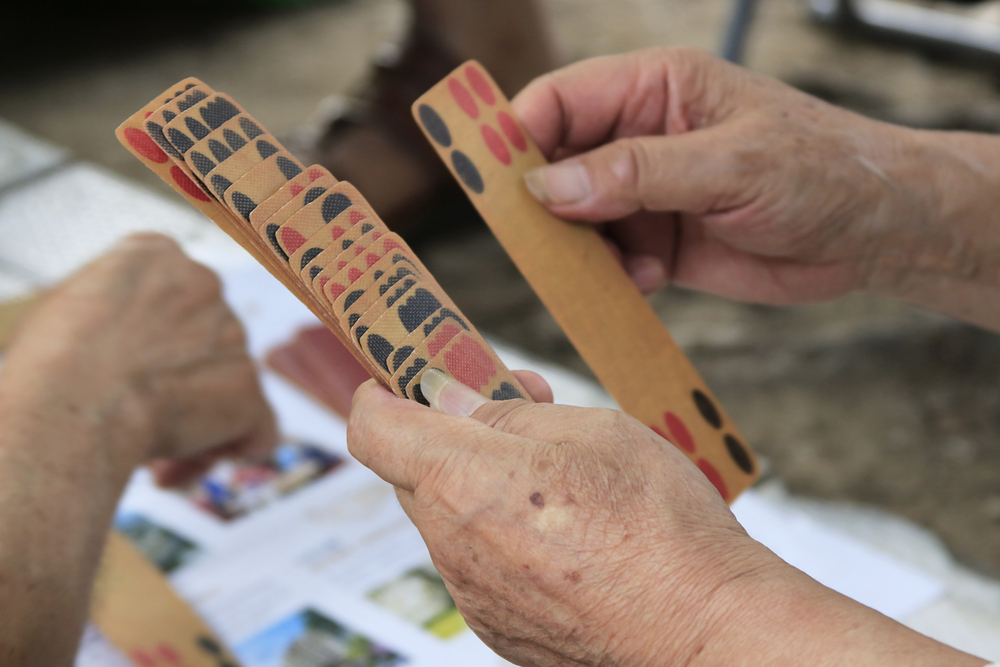Chinese poker does not involve any betting or the use of chips like the conventional poker games. However, the use of hands makes it fit the definition of a poker game. Between two and four players can play the game. It uses a 52-card deck and has several ways to score as explained below.
The History
Chinese poker was said to have its roots from the emperor Mu-Tsung dynasty where a poker-like game was played during his reign. Over the years, the game has progressed, taking in some concepts from the western poker games. However, the game was not known to the world until it became popularised in the early 1990s when it featured in the world poker games competitions of 1995 and 1996. Some of the first winners of the game in the competition were Tsagaris who won the game in 1995, Gregory Grivas and Steve Zolotow who won the game in 1996. The game has become very popular in both land-based and online casinos with thousands earning huge sums over the years. Today, the game is also called Pusoy.
Playing Chinese poker at a casino seems quite hard when doing it for the first time. However, if you learn a few tricks and its basic rules, it provides many opportunities to make lots of cash in winnings.
How to Play Chinese Poker
After shuffling the cards, the dealer then deals out an entire deck of hands into four hands. Each of the hands gets 13 cards. If there are less than four players, the rest of the hands are unused or discarded. If there are two players in the game, each receives one hand and reserves a second hand for the next hand, therefore, saving the dealer the need to re-deal. However, the player is only allowed to look at the hand that he or she is currently playing.
Hand Selection
Each of the hands has 13 cards. Your work as a player is to break the 13 hands into three hands- the bottom, the middle and top hand. Your bottom hand should have five cards and should be the best hand of the three. The middle hand should have five cards too but should be weaker than the bottom hand and stronger than the top hand. Finally, the top hand should have three cards. It should be the worst of the three hands.
Additional rules: The five-poker hand follows the general card-ranking regime in poker. The three-card hand can only take the highest hands. One can also use pairs and triples. You cannot use any straights or flushes. As part of your poker strategy, you can have Aces at the bottom, jacks at middle and nines at the top.
Poker Tips on Scoring
On sorting all the cards, you can immediately start scoring with your hands. When scoring, you compare each hand with the hands of the respective players. The best hand earns points off the players with weak hands. In a two-player game, if one player wins two hands, and the other player wins one hand, the winner of the two hands gets a point while the player with a single win gets none as his or her point cancels out with the extra point won by the opponent.
You can split your middle hands to strengthen the top if the bottom hand is already done. Moreover, mix up your game to prevent others from guessing your cards.
Special Rules
There are variations in rules and hands. Here are some of the variations you can put in your Chinese poker strategy.
- Scooping: Scooping is an event where a player wins all the three hands against the opponents. When you scoop, you earn a bonus. A bonus doubles the points earned. Also, a scoop earns a player six points rather than three points. Aim to scoop in every possible opportunity.
- Fouls: If any of the players makes a foul by either sorting cards against the rules or holding more cards than required in the game, the opposing players automatically make a scoop.
- Lowballing in the middle hand: Instead of the five-card middle hand in the standard poker game, you can also have 2-7 lowball hand.
- Royalties: Most people who play the Chinese poker will do so with royalties. Although there are several variations in royalties, here are the most common.
Where players award a royalty to a hand that is worth it, royalties are awarded only to the player who wins the comparison hand. For example, if one player has a straight and the other has two pairs, the player with straight wins the game.
A player who has quads and better at the bottom trips in the top or a full house or better in the middle will earn a royalty. If you make a single 13-card hand (a straight from 2 to A), you automatically scoop regardless of the comparison hands with other players. Finally, you can set any rules for bonuses as long as you all agree.
